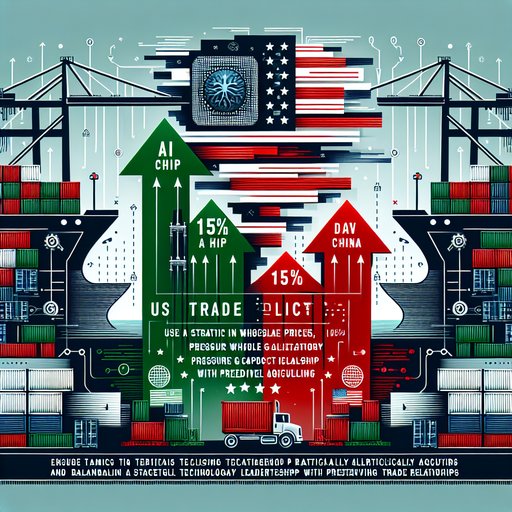
In a significant shift in tech trade policy, the US government has implemented a 15% tax on AI chip sales to China, affecting major manufacturers like NVIDIA and AMD. This move comes just weeks after lifting an earlier ban on NVIDIA's H20 AI chip sales, marking a new approach to maintaining American technological dominance while allowing controlled trade [1].
The decision reflects growing concerns about maintaining US leadership in critical technologies, with officials explicitly stating that "America cannot repeat 5G and lose telecommunication leadership." Rather than implementing outright bans, this new strategy aims to balance commercial interests with national security concerns through targeted taxation [1].
The impact of recent trade policies is already visible in broader economic indicators, with US wholesale prices showing their fastest increase in over three years. This surge in prices has raised concerns about inflation and the broader economic effects of ongoing trade tensions [2].
The agricultural sector continues to face significant challenges, particularly in the Midwest, where farmers are dealing with both trade pressures and environmental challenges. Soybean farmers in Ohio are especially affected, as they navigate market uncertainties while battling increased disease and pest pressure due to adverse weather conditions [3].
Some companies have managed to find ways to mitigate the impact of trade tensions. Apple, for instance, has recently secured tariff relief, contributing to a 15% increase in its stock value alongside strong iPhone demand [4].
- NVIDIA and AMD will pay 15% for the right to sell to China in Trump's AI chip tax — "America cannot repeat 5G and lose telecommunication leadership"
- US wholesale prices jump in July as Donald Trump's tariffs hit
- Farmers in US midwest squeezed by Trump tariffs and climate crisis
- Morgan Stanley says Apple stock could be ‘turning the corner’ on strong iPhone demand
























